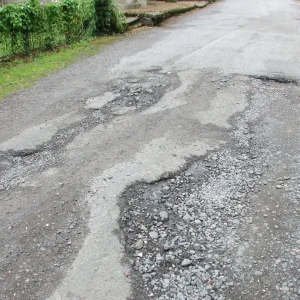
UK new car registrations were down by 1.3% year-on-year last month, marking the first such decline seen since July 2022.
Contributing to this was the fleet sector, which often in recent months has boosted the overall market, being down by 1.2% year-on-year in August – although the fleet share of the overall market was stable at 60.7%.
Private registrations were up by 0.2%, while business registrations – classed as those to firms with fewer than 25 vehicles – were down by 30.3%, though these represent only 1.3% of the overall market.
In terms of fuel mix, pure EV registrations were up by 10.8%, for a 22.8% market share, which according to the Society of Motor Manufacturers and Traders (SMMT), which has published the figures, is attributable to heavy discounting by manufacturers during the summer, as well as new models attracting buyers. The EV market share was the highest seen since December 2022.
Plug-in hybrid registrations were down by 12.3% year-on-year, taking 6.8% of the market, while hybrid registrations shot up by 36.1%, to take 13.8% of the overall market.
Petrol car registrations fell by 10.1%, taking 50.7% of the market, while diesel car registrations were down by 7.3%, for a 6.1% market share.
ZEV concern
Despite August having seen strong EV sales, the SMMT said its current end-of-year projection of an 18.5% EV market share was still down on the 22% required for each manufacturer by the UK Government’s ZEV mandate.
The SMMT therefore said urgent action was needed to boost the EV market, including binding targets on public chargepoint provision, the reintroduction of incentives for private buyers, and the removal of disincentives, including the Vehicle Excise Duty expensive car supplement, set to be introduced in 2025.
SMMT chief executive Mike Hawes said: “August’s EV growth is welcome, but it’s always a very low volume month and so subject to distortions ahead of September’s number plate change.
“The introduction of the new 74 plate, together with a raft of compelling offers and discounts from manufacturers, plus growing model choice, will help increase purchase consideration and be a true barometer for market demand.
“Encouraging a mass market shift to EVs remains a challenge, however, and urgent action must be taken to help buyers overcome affordability issues and concerns about chargepoint provision.”
Philip Nothard, insight director for data firm Cox Automotive, said: “The ZEV mandate may be grounded in good intention, but it is putting the new vehicle sector under impossible and unreasonable pressure.
“The tactics we are likely to see deployed by OEMs and retailers to hit their numbers in the closing months of this year will be drastic, expensive and risky, creating an unrealistic and unnatural market with potentially far-reaching consequences over the long term. We urge the government to listen to the sector’s feedback, review the mandate and implement support packages to fast-track EV adoption.
“August played out as we expected; it is traditionally a low-volume month. We stand by our forecast of 2.02m registrations for the full year. Still, we are in no doubt that September – the second most critical month of the year for registrations – and Q4 will be an extremely challenging period for the sector.”
Christine Hart, legal director in the manufacturing and supply chain sector team at law firm Brabners, said: “The UK’s new car market remains buoyant but a first decline in sales in two years is naturally cause for concern – particularly amid warnings of dealers rationing ICE sales to meet green targets.
“Indeed, we’re unlikely to see the sector meet the mandate that EVs make up a fifth of the market while household budgets remain under pressure and financing costs high.
“At the same time, a key task for the new government will be to instil greater confidence in the nation’s evolving charging infrastructure – something that will have caused some anxiety among staycationers this summer when planning their travels.”





